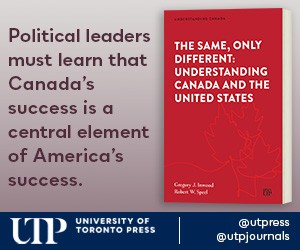Canada has a long history of suspending minority rights. The vast majority of us have been alright with that: ‘It’s not going to affect me, so what do I have to worry about?’ The typical Canadian would gladly trade away whatever liberties and freedoms are guaranteed in the Charter of Rights on a promise of increased security. This is a trade we’ve made as a country over and over again, and we’re doing it again.
Bill C-51 The Anti-Terrorism Act is a frightening measure. It undermines the rule of law and is an affront to a democratic country. It’s frankly shocking.
The rationale for the bill is the tragic death of two soldiers by two lone-wolf, would-be terrorists with mental health and addiction issues. When isolated incidents in extraordinary circumstances become the starting point for legislation, the result is predictable. Bill C-51 is excessive and unnecessary, and may impact the liberties of thousands of Canadians.
The bill creates a new crime of “knowingly advocating or promoting the commission of offences in general.” It allows police to seize “propaganda” or delete a website. Most alarming, it grants the Canadian Security Intelligence Service new authority to ask the courts to sanction unconstitutional or criminal activity. CSIS can attend a secret hearing and submit a request to investigate a citizen, unopposed. It is something we have never had in Canada, where every citizen has a right to be presumed innocent; to face charges in open court; and to defend themselves with legal counsel.
Bill C-51 states that in attempting to gather intelligence in the name of national security, they are allowed all latitude short of any measure resulting in death, bodily harm, or damage to the sexual integrity of their target. Short of that, anything is fair game – and judges are going to be asked to put their Good Housekeeping seal of approval on it. The implications are disturbing.
The response to this is also typically Canadian: ‘I’ve done nothing wrong, so why do I have worry?’ Most of us were not arrested without charge in the 1970 October Crisis; we were not interned as Japanese-Canadians in 1941, or sent to work camps as Ukrainian-Canadians in 1914. I’m not Ukrainian, or Japanese, or a Québec separatist, so why do I have to worry?
The apologies come later.
So, we trade other Canadians’ freedoms for our own sense of security with actions that undermine the Charter of Rights and basic democratic principles. And I ask myself, how many years will it take before a Prime Minister stands in the Commons to apologize to Muslim Canadians?
(Editor’s note: the author is a civil liberties lawyer with Greenspon, Brown & Associates, and past president of the Defence Counsel Association of Ottawa)









